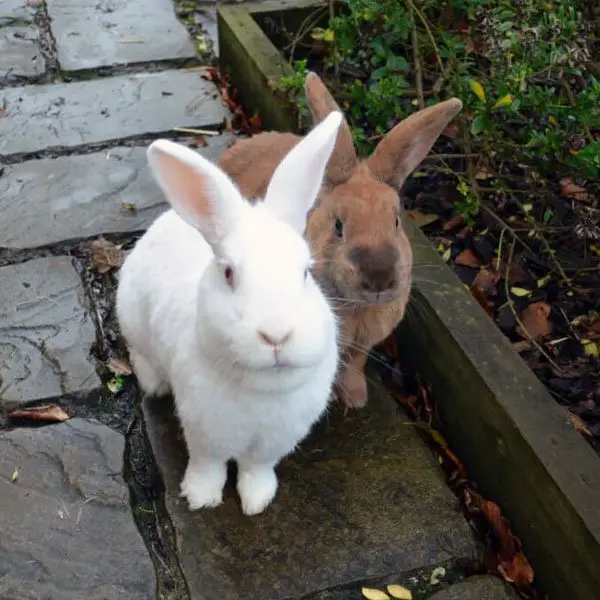Snuffles: The Rabbit Cold is More Dangerous Than You Think

When you think of a cold, you might not consider it to be a big deal. However, for rabbits, a cold can be very dangerous and even deadly. This is because rabbits have very sensitive respiratory systems and their bodies are not able to fight off the virus like humans can.
A rabbit cold is also known as “snuffles” and it is caused by bacteria or a fungus growing in the sinuses. The symptoms of snuffles include runny eyes, discharge from the nose, sneezing, and difficulty breathing. If your rabbit is showing any of these symptoms, it is important to take them to the vet immediately.
Snuffles is a common cold that rabbits can catch, and it’s more dangerous than you might think. Symptoms include runny nose, watery eyes, sneezing, and fever. If your rabbit has any of these symptoms, take them to the vet immediately.
Snuffles is highly contagious and can be deadly if left untreated.
Snuffles in rabbits: Symptoms of the Rabbit Cold
Snuffles Rabbit Symptoms
If your rabbit has a runny nose, watery eyes, or is sneezing more than usual, they may have a condition called “snuffles.” Snuffles is the common name for a bacterial infection of the upper respiratory tract in rabbits. It is caused by bacteria called Bordetella bronchiseptica, and can be spread between rabbits through contact with infected saliva, secretions from the nose or eyes, or contact with contaminated objects.
Symptoms of snuffles include runny nose, watery eyes, sneezing, and sometimes a fever. The discharge from the nose may be clear at first, but can become thick and yellowish as the infection progresses. In severe cases, rabbits may lose their appetite and energy levels will drop.
Snuffles can also lead to secondary infections such as pneumonia.
If you think your rabbit has snuffles, it’s important to take them to see a vet right away. While there is no cure for the disease itself, early treatment can help relieve symptoms and prevent complications.
Treatment typically involves antibiotics given either orally or through injections. Your vet may also recommend using special nasal washes to help clear out any discharge from your rabbit’s nose.
Snuffles in Rabbits Causes
Snuffles is a common condition in rabbits that is caused by an infection of the upper respiratory tract. The most common symptom of snuffles is a runny nose, but it can also cause sneezing, congestion, and eye discharge. In severe cases, snuffles can lead to pneumonia and even death.
The good news is that snuffles is treatable with antibiotics. If you think your rabbit has snuffles, take them to the vet for an examination and diagnosis.
Treatment of Snuffles in Rabbits
Snuffles is a common respiratory infection in rabbits that can be caused by several different bacteria. Early diagnosis and treatment is important to improve the chances of recovery.
The most common symptom of snuffles is a runny nose, but other signs can include sneezing, watery eyes, and difficulty breathing.
If your rabbit has any of these symptoms, they should see a veterinarian as soon as possible.
There are several different antibiotics that can be used to treat snuffles, but the most effective one will depend on the specific bacteria causing the infection. Your veterinarian will likely recommend a course of treatment for at least two weeks.
In addition to antibiotics, supportive care such as plenty of rest and good nutrition is important for helping your rabbit recover from snuffles. Make sure their cage is clean and dry, and provide them with fresh water and hay at all times. If your rabbit is having trouble eating, you may need to syringe feed them until they recover their appetite.
Snuffles in Rabbits Treatment at Home
Rabbits are susceptible to a number of respiratory diseases, one of which is called “snuffles.” Snuffles is caused by bacteria that infect the upper respiratory tract, and it can be quite serious if left untreated. Symptoms include runny nose, watery eyes, sneezing, and congestion.
If your rabbit has snuffles, it’s important to take them to the vet for treatment. However, there are also some things you can do at home to help ease your rabbit’s symptoms.
One of the most important things you can do is to make sure your rabbit has plenty of fresh water to drink.
This will help them stay hydrated and will also thin out their mucus so they can breathe more easily. You should also clean their cage regularly and remove any wet bedding or food that could contribute to the spread of infection. It’s also a good idea to increase the ventilation in their environment and keep them away from any drafts.
There are a number of over-the-counter medications that can help relieve your rabbit’s symptoms, but it’s always best to check with your vet before giving them anything new. Some common treatments include antihistamines (such as Benadryl), decongestants (such as Sudafed), and vapor rubs (such as Vicks VapoRub). Be sure to follow all instructions carefully when giving any medication to your rabbit.
In severe cases, rabbits may need antibiotics or other medication prescribed by a veterinarian in order to clear up the infection. If your rabbit is showing signs of illness beyond just sniffling and sneezing, such as lethargy or loss of appetite, be sure to take them in for an examination right away.

Credit: squeaksandnibbles.com
How Serious is Snuffles in Rabbits?
Snuffles, also known as rabbit rhinitis or pasteurellosis, is a highly contagious disease caused by the bacteria Pasteurella multocida. It affects the upper respiratory tract and can cause severe congestion, runny nose, and eye discharge. In severe cases, it can lead to pneumonia and even death.
Early diagnosis and treatment is essential for a good outcome.
Can Humans Get Snuffles from Rabbits?
Yes, humans can get snuffles from rabbits. Snuffles is a bacterial infection of the upper respiratory tract that is common in rabbits. It is caused by the bacteria Pasteurella multocida and can be spread to humans through contact with an infected rabbit’s nose or eyes, or through contact with their urine or feces.
Symptoms in humans include runny nose, congestion, fever, and headaches. Treatment involves antibiotics and supportive care.
What Causes Rabbit Snuffles?
Rabbit snuffles, also called Bordetella, is a highly contagious respiratory infection that affects rabbits. The disease is caused by the Bordetella bronchiseptica bacteria and is spread through contact with an infected animal or their environment. Symptoms of rabbit snuffles include sneezing, runny nose, watery eyes, and loss of appetite.
The disease can quickly lead to pneumonia and death in rabbits if left untreated. Treatment for rabbit snuffles typically includes antibiotics and supportive care.
Can Snuffles in Rabbits Be Cured?
If your rabbit has snuffles, also called Pasteurella, it is a bacterial infection that must be treated by a veterinarian. There are many different strains of the Pasteurella bacteria and some are more virulent than others. Your vet will likely take a culture from your rabbit’s nose to determine which strain is causing the infection and prescribe the appropriate antibiotics.
In some cases, surgery may be necessary to remove blockages in the nasal passages caused by the infection. While there is no cure for Pasteurella, with prompt treatment most rabbits recover fully.
Do Rabbits with Snuffles Require More Space Than Healthy Rabbits?
Do rabbits with snuffles require more space than healthy rabbits? When it comes to rabbits’ space requirements, it is crucial to consider their health conditions. Rabbits with snuffles, a respiratory infection, may benefit from additional space to alleviate congestion and promote better airflow. Providing enough space can help ensure their comfort and overall well-being.
Conclusion
Rabbits are susceptible to a condition called snuffles, which is caused by a bacteria called Bordetella bronchiseptica. This bacteria is common in rabbits, and can cause respiratory infections, pneumonia, and even death. Snuffles is more dangerous in rabbits than you might think, and it’s important to be aware of the signs and symptoms so you can get your rabbit treated as soon as possible.
